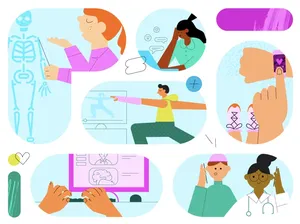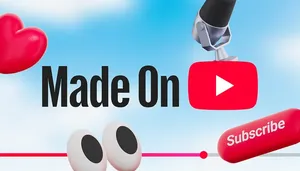Expanding our support for teen wellbeing on YouTube across the Middle East and North Africa

Today, we’re announcing the rollout of additional safeguards for content recommendations for teens, developed in consultation with a team of independent experts from YouTube’s Youth and Families Advisory Committee, specializing in child development, digital learning, children’s media and more.
One of the Advisory Committee’s important contributions over the years has been advising YouTube on the developmental stages of teens — and specifically how content consumed online can impact the wellbeing of teens. One insight is that teens are more likely than adults to form negative beliefs about themselves when seeing repeated messages about ideal standards in content they consume online.
These insights led us to develop these additional safeguards for content recommendations, while still allowing teens to explore the topics they love. Working with the Advisory Committee, we identified categories of content that may be innocuous as a single video, but could be problematic for some teens if viewed repetitively. These categories include content that compares physical features and idealizes some types over others, idealizes specific fitness levels or body weights, or displays social aggression in the form of non-contact fights and intimidation.
As a result, we’re now limiting repeated recommendations of videos related to those topics for teens in the region and globally. As always, we’re continuing to enforce our Community Guidelines to remove content and prevent minors from seeing videos that cross the line of our policies, including on child safety, eating disorders, and harassment.
A collaborative approach to teen supervision on YouTube
YouTube is a place where teens can learn, explore their passions, express themselves, and find belonging. We recognise the important part we play in their lives and from today, we’re introducing a new supervised experience on YouTube that will give parents and teens the option to link their accounts and get shared insights and notifications. This new experience is designed to keep parents informed about their teens' channel activity on YouTube and help them provide encouragement and advice on responsible content creation.
Soon, parents and teens will be able to initiate account linking in our new Family Centre hub. In Family Centre, parents can see shared insights into their teens’ channel activity on YouTube including the number of uploads, subscriptions and comments. Parents (and teens) will also receive proactive email notifications at key events, like when teens upload a video or start a livestream, providing an opportunity to offer advice on responsible creation supported by resources created with Common Sense Networks, an affiliate of Common Sense Media.
Our products for youth including YouTube Kids, reach more than 100 million active logged-in and logged-out viewers every month globally and the development of these products is guided by independent experts. In partnership with these experts and in accordance with our youth principles, we’ve created this new experience that respects teens’ autonomy by giving parents and teens mutual control and new resources that empower teens to become informed and responsible digital citizens. We'll continue engaging with experts and parents as we expand and evolve this experience.
These new updates join our robust set of policies and services that protect our entire community and connect people to trusted sources — from guarding against hate speech and dangerous challenges to YouTube Kids and our supervised experiences offering different libraries of content for different levels of maturity, and giving families extensive tools to manage their children’s screen time.

Partnering with credible organizations to support teen wellbeing on YouTube
At YouTube, we also strongly support families, researchers, policymakers, companies and experts coming together to define a set of consistent standards for young people online. To that end, we’re working with the World Health Organization (WHO) to develop public, industry-wide resources related to teens and online wellbeing.
Earlier this year, we supported the WHO and the British Medical Journal (BMJ) in hosting a roundtable of experts to develop guiding principles on defining developmentally appropriate mental health content for teens and examining strategies for communicating mental health resources and information to teens online. The resulting report aims to provide information that will help creators and services better develop age-appropriate mental health resources, as well as provide tips for families and educators to identify enriching mental health content.
All of this work is underpinned by a set of five principles that we adhere to when building services and features for kids and teens, which is why their privacy, safety, wellbeing and mental health is at the core of our work.
Many of us at YouTube working on these initiatives are parents ourselves, and we’re uniquely aware of the choices families face when it comes to ensuring the wellbeing of loved ones and setting digital ground rules. Our goal is to provide parents with the confidence to let their children and teens explore their interests and the tools that empower families to customize their experiences across YouTube.
We’re proud to build on our important work related to youth experiences, digital wellbeing, and mental health, with more to come in the future.






